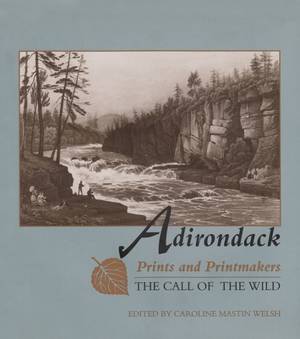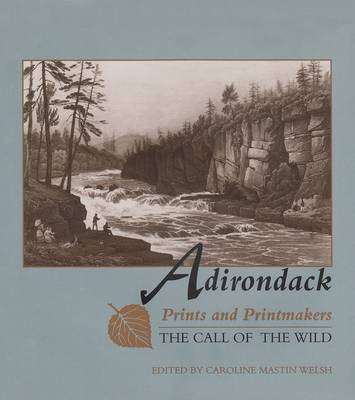
- Retrait gratuit dans votre magasin Club
- 7.000.000 titres dans notre catalogue
- Payer en toute sécurité
- Toujours un magasin près de chez vous
- Retrait gratuit dans votre magasin Club
- 7.000.0000 titres dans notre catalogue
- Payer en toute sécurité
- Toujours un magasin près de chez vous
Adirondack Prints and Printmakers
The Call of the Wild
34,95 €
+ 69 points
Description
Since the late eighteenth century, the Adirondacks--first characterized as a "Dismal Wilderness" and then a "Sportsman's Paradise"--has challenged cartographers, scientists, sportsmen, travelers, and artists. In a volume that covers nearly three hundred years of artistic achievement, Adirondack Museum curator Caroline M. Welsh includes essays that were originally presented at the 1995 North American Print Conference at the Adirondack Museum. Comprehensive in scope and lavishly illustrated, the book embodies the artistic spectrum from the documentary to the aesthetic.
Paintings of Adirondack scenery were frequently reproduced as prints. Lithographs after original paintings disseminated affordable fine art to a broad middle class, exemplifying a pervasive nineteenth-century faith that art. By 1850, this northern expanse became a sanctuary for artists. Inspired by the drama of the landscape, the purity of the light, and the grandeur of its rugged wilderness, artists flocked to the region. From Winslow Homer, Dr. Arpad Gerster, and the French naturalist Jacques Gerard Milbert to Canadian artist David Milne, Adirondack Prints and Printmakers underscores the importance of the wilderness landscape in American art and culture and the role that prints have played to document, promote, and celebrate the Adirondacks.Spécifications
Parties prenantes
- Editeur:
Contenu
- Nombre de pages :
- 240
- Langue:
- Anglais
- Collection :
Caractéristiques
- EAN:
- 9780815605195
- Date de parution :
- 01-05-98
- Format:
- Livre relié
- Format numérique:
- Genaaid
- Dimensions :
- 210 mm x 237 mm
- Poids :
- 866 g

Les avis
Nous publions uniquement les avis qui respectent les conditions requises. Consultez nos conditions pour les avis.





